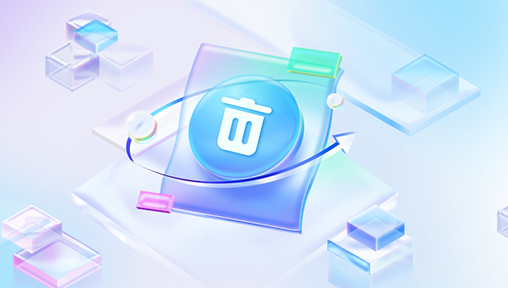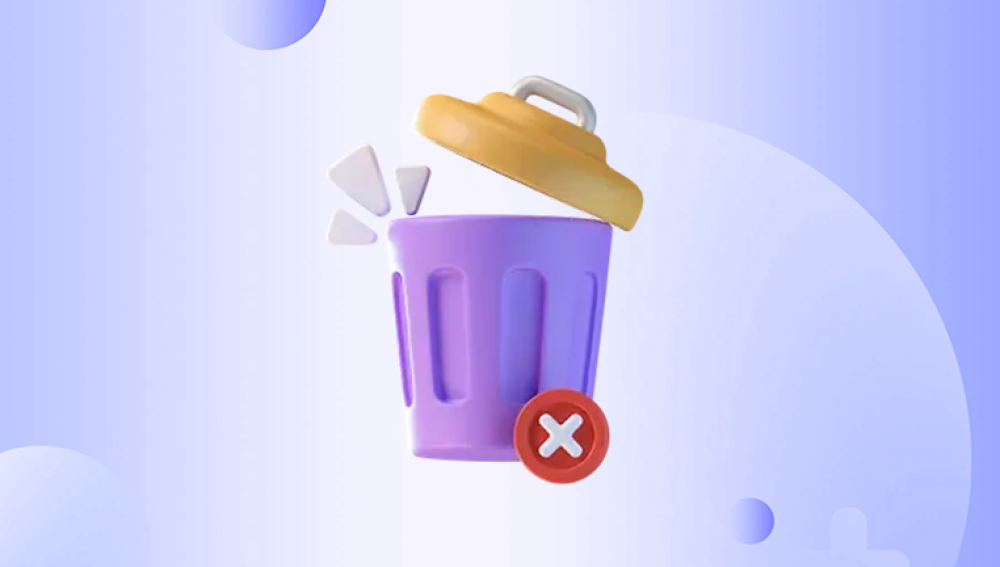This issue is relatively common and can be caused by various factors, such as file corruption, system bugs, or permission issues.
1. Common Causes of Files Not Deleting from Recycle Bin
Before diving into solutions, understanding why the files may not delete is essential. Below are some common causes:
a) Corrupted Recycle Bin
One of the main reasons could be corruption in the Recycle Bin folder. If the Recycle Bin becomes corrupted, it may not function properly, and files may remain in the bin despite repeated attempts to delete them.
b) File in Use
Another possible reason is that the file might be in use by a program. When a file is being accessed by an active process, the operating system may prevent it from being deleted.
c) File System Errors
Issues in the file system itself can cause problems when trying to delete files from the Recycle Bin. For instance, if your hard drive has corrupted sectors, files may get stuck in the bin.
d) Insufficient Permissions
Sometimes, insufficient user permissions or administrative rights may prevent the deletion of files, especially if they were created by another user account or belong to the system.
e) Malware or Virus
Malware or viruses can also lock files or create files that can’t be easily deleted by conventional means.
f) Misconfigured Recycle Bin Settings
Sometimes, the Recycle Bin’s settings may have been changed, preventing files from being deleted permanently. This can happen after system updates or configuration changes.

2. Methods to Fix Files Not Deleting from the Recycle Bin
Here are several methods to try when files won’t delete from the Recycle Bin.
a) Restart the Computer
The simplest solution is to restart your computer. This clears any processes that might be locking the files in the Recycle Bin, allowing you to delete them upon restart.
b) Use Windows Command Prompt (CMD)
If restarting doesn’t work, you can use the Command Prompt to manually delete the contents of the Recycle Bin.
Here’s how to do it:
Press Windows + X and select Command Prompt (Admin) or Windows PowerShell (Admin).
In the command window, type the following command and press Enter:
bash
复制代码
rd /s /q C:\$Recycle.bin
This command will forcefully remove the Recycle Bin folder and recreate it, effectively clearing the contents.
c) Safe Mode
Starting Windows in Safe Mode can help you delete files when a process is preventing it. In Safe Mode, the operating system runs only essential services, which makes it easier to remove files that are otherwise locked.
To enter Safe Mode:
Press Windows + R and type msconfig, then press Enter.
Go to the Boot tab and check the box for Safe boot under Boot options.
Restart your computer and try deleting the files from the Recycle Bin.
d) Empty the Recycle Bin from Disk Cleanup
Windows’ built-in Disk Cleanup tool can be a useful method for deleting files that won’t delete manually.
Here’s how to use it:
Open the Start menu and type Disk Cleanup.
Select your primary drive (usually C:) and let the system scan.
When the window appears, check the box next to Recycle Bin and click OK.
This method will force delete files from the Recycle Bin and can bypass common issues that prevent manual deletion.
e) Take Ownership of the Files
Sometimes, you may need to take ownership of the files to delete them, especially if they belong to another user account or are system-protected.
Here’s how to take ownership of the file:
Right-click the file that won’t delete, and select Properties.
Go to the Security tab, and click Advanced.
Next to the Owner field, click Change.
Enter your user account name and click OK.
Once you have ownership, try deleting the file again.
f) Use a Third-Party File Unlocker Tool
Sometimes a third-party tool may be required to unlock and delete stubborn files. Several tools can help you achieve this, such as:
Unlocker
IObit Unlocker
LockHunter
These programs force the system to release any locked files, allowing you to delete them.
g) Scan for Malware
If the issue is caused by malware, running a full system scan using a trusted antivirus program is essential. Malware can create undeletable files, and removing the virus will often solve the problem.
Here’s how to perform a full scan:
Use your installed antivirus software (e.g., Windows Defender, Avast, Malwarebytes) to run a full system scan.
If any malware is detected, follow the prompts to remove it.
Restart your computer and attempt to delete the files again.
h) Reset Recycle Bin Using Windows Settings
If the Recycle Bin itself is corrupted, you can reset it to fix the problem.
Here’s how to reset the Recycle Bin:
Press Windows + X and select Command Prompt (Admin).
Type the following command and press Enter:
bash
复制代码
attrib -h -r -s C:\$Recycle.bin /s /d del C:\$Recycle.bin /f /s /q
This command will reset the Recycle Bin for the specified drive, fixing any corruption issues.
3. Advanced Solutions
a) Check for Disk Errors (CHKDSK)
If file system errors are preventing deletion, running the built-in Check Disk tool can help.
Here’s how to do it:
Open Command Prompt (Admin) and type the following command:
bash
复制代码
chkdsk /f C:
Press Enter and follow the prompts. The tool will scan your hard drive for errors and attempt to fix them.
b) System Restore
If the issue started recently and no solutions are working, performing a System Restore to a previous point may fix the problem. A system restore can revert the system back to a time when the Recycle Bin was functioning normally.
To perform a system restore:
Press Windows + S, and type System Restore.
Follow the on-screen instructions to restore your system to a previous point.
4. Preventing Future Issues
Once you’ve managed to delete the files, it’s a good idea to take some preventive steps to avoid similar problems in the future:
a) Regular Disk Cleanup
Performing regular disk cleanups helps maintain a healthy system. You can schedule Disk Cleanup or run it manually to delete unnecessary files, including those in the Recycle Bin.
b) Avoid Forced Shutdowns
Avoid shutting down your computer forcefully. Improper shutdowns can corrupt the Recycle Bin, leading to undeletable files.
c) Regular Antivirus Scans
Perform regular antivirus scans to ensure your system remains free of malware or viruses that could create files that are difficult to delete.
d) Check Hard Drive Health
Monitoring the health of your hard drive can prevent future file system issues. Tools like CrystalDiskInfo can help you check for any hard drive problems before they become serious.




